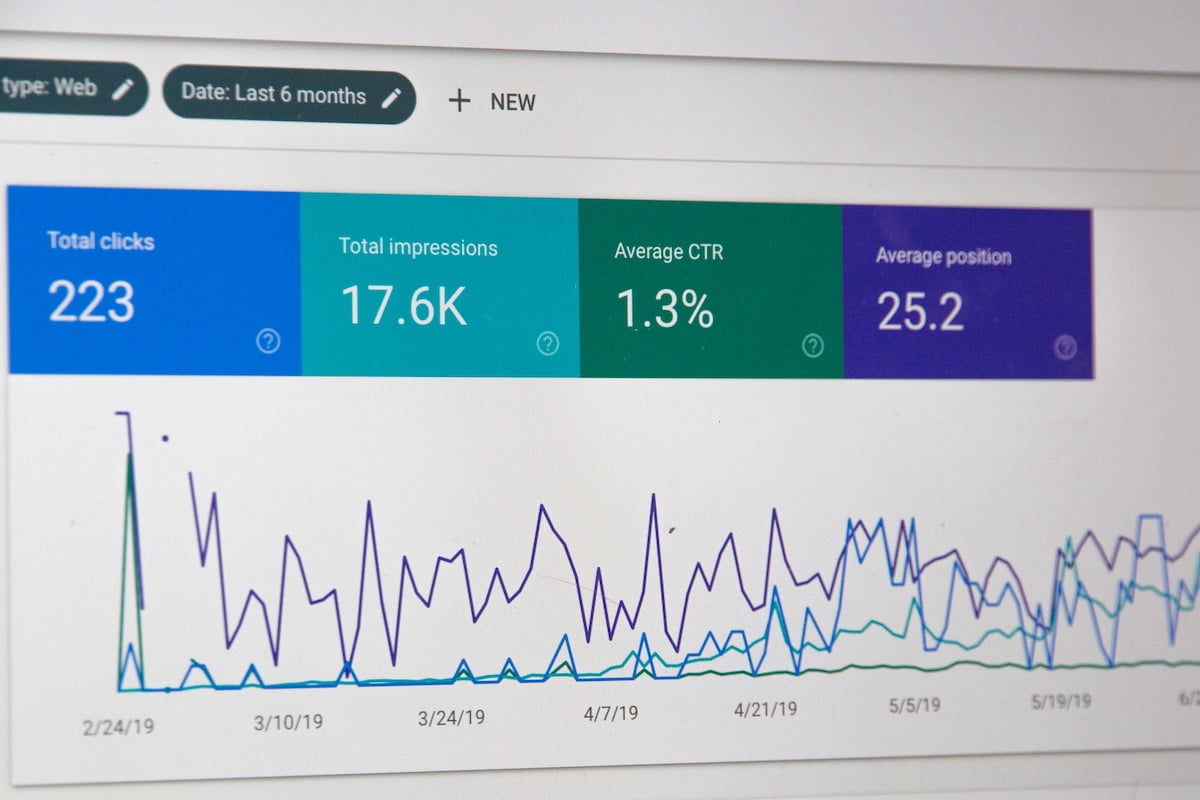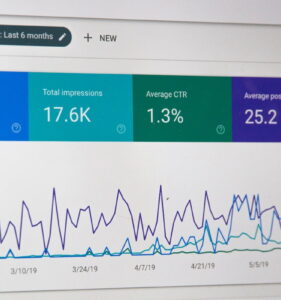Search Engine Optimization (SEO) is an ever-evolving field that has become an essential aspect of digital marketing. With over 3.5 billion searches per day on Google alone, it’s no wonder that businesses are scrambling to ensure that their website ranks highly in search engine results pages (SERPs).
But with so many SEO metrics that can influence search rankings, it can be overwhelming for businesses to understand where to focus their efforts. In this article, we’ll explore the key aspects of SEO that have the biggest impact on search engine rankings.
Content Quality and Relevance
The quality and relevance of your website’s content is the most important factor in SEO. Search engines aim to provide users with the most relevant and useful content possible, so it’s essential that your website meets this requirement.
To ensure your content is of high quality, it should be well-written, informative, and engaging. It’s also important to use relevant keywords and phrases throughout your content, without keyword stuffing or over-optimizing.
Furthermore, content relevance is crucial in attracting traffic and improving rankings. You should focus on creating content that is relevant to your target audience and industry. This helps search engines understand the context of your website and the purpose it serves, leading to better rankings.
Website Structure and Navigation
The structure and navigation of your website play a vital role in search engine rankings. A well-structured website with easy navigation makes it easier for search engines to crawl and index your website, leading to better rankings.
To improve your website’s structure, ensure that it has a clear hierarchy of pages and sections, with a well-defined sitemap. Your website should also be mobile-friendly, with a responsive design that adjusts to different screen sizes.
Additionally, website navigation should be intuitive and user-friendly. Use descriptive and concise navigation labels and avoid complicated dropdown menus. This not only improves user experience but also helps search engines understand the structure of your website.
Backlinks and Link Building
Backlinks are an essential aspect of SEO and have a significant impact on search engine rankings. Backlinks are links from other websites that point to your website, indicating that your content is authoritative and trustworthy.
To improve your website’s backlink profile, focus on building high-quality links from authoritative websites. This can be achieved through outreach, guest blogging, and creating high-quality content that attracts natural backlinks.
It’s important to note that not all backlinks are created equal. Quality is more important than quantity, so focus on building backlinks from relevant websites with high domain authority.
Technical SEO
Technical SEO refers to the backend aspects of your website that impact search engine rankings. Technical SEO encompasses various elements, including website speed, security, and schema markup.
Website speed is a crucial factor in SEO, as faster websites lead to better user experience and improved rankings. To improve website speed, optimize images and videos, minimize HTTP requests, and leverage caching.
Website security is also essential, as it provides a safe browsing experience for users. Ensure that your website is HTTPS-secured, has a valid SSL certificate, and has protection against malware and spam.
Finally, schema markup is a type of microdata that helps search engines understand the content of your website. By implementing schema markup, you can improve your website’s visibility in SERPs, leading to better rankings.
User Experience
User experience (UX) is a critical factor in SEO, as search engines aim to provide users with the best possible experience. UX encompasses various aspects, including website design, page load times, and mobile-friendliness.
To improve UX, ensure that your website design is clean, modern, and easy to navigate. Use white space, clear fonts, and high-quality images to enhance the user experience. Additionally, ensure that your website is optimized for mobile devices, as an increasing number of searches are conducted on mobile devices.
Page load times are also essential for UX, as slow-loading pages can lead to a high bounce rate and lower rankings. To improve page load times, optimize images, use a content delivery network (CDN), and leverage browser caching.
In conclusion, SEO is a complex and multifaceted field that requires a holistic approach. By focusing on the key aspects discussed in this article, you can improve your website’s search engine rankings and attract more traffic to your site. Remember to create high-quality, relevant content, optimize your website structure and navigation, build high-quality backlinks, and prioritize technical SEO and UX. By following these guidelines, you can unlock the full potential of your digital marketing efforts and stay ahead of the competition.
Rank SEO metrics in terms of which has the most effect
It’s difficult to rank SEO metrics in terms of which has the most effect, as each aspect of SEO plays a vital role in improving search engine rankings. However, some metrics may have a more significant impact than others, depending on your specific website and industry. Here are some general guidelines on the relative importance of SEO metrics:
- Content quality and relevance: As mentioned earlier, the quality and relevance of your website’s content is the most important factor in SEO. This includes SEO metrics such as keyword usage, engagement metrics (such as bounce rate and time on site), and the relevance of the content to the user’s search query. Without high-quality, relevant content, it’s difficult to attract traffic and improve rankings.
- Backlinks and link building: Backlinks from authoritative websites remain a critical aspect of SEO. They provide signals to search engines that your website is trustworthy and authoritative. However, it’s important to focus on quality rather than quantity when building backlinks. High-quality, relevant links from authoritative websites will have a more significant impact on your rankings than low-quality links from spammy websites.
- Technical SEO: Technical SEO encompasses various elements, including website speed, security, and schema markup. While technical SEO may not directly impact the user experience, it plays a crucial role in ensuring that search engines can crawl and index your website correctly. Issues such as slow page load times, security vulnerabilities, or poor markup can negatively impact your rankings.
- User experience: User experience (UX) is a crucial aspect of SEO, as search engines aim to provide users with the best possible experience. UX encompasses various elements, including website design, page load times, and mobile-friendliness. While UX may not directly impact search engine rankings, it can indirectly impact them by influencing user engagement metrics, such as bounce rate and time on site.
- Website structure and navigation: The structure and navigation of your website can impact how search engines crawl and index your website. A well-structured website with clear navigation can make it easier for search engines to understand the hierarchy of pages and sections. Additionally, a mobile-friendly website with responsive design can improve the user experience and indirectly impact rankings.
Overall, it’s essential to focus on all aspects of SEO to improve your website’s search engine rankings. Each metric plays a vital role in ensuring that your website is optimized for search engines and users alike. By taking a holistic approach to SEO and continually monitoring and improving each metric, you can stay ahead of the competition and attract more traffic to your website.
Do links from social media platforms count as backlinks
Links from social media platforms are technically not considered backlinks in the traditional sense. Backlinks typically refer to links from external websites that point to your website, while social media links are internal to the platform.
However, links from social media platforms can indirectly impact your website’s SEO. Social media links can drive traffic to your website, which can improve engagement metrics such as time on site and bounce rate. Additionally, social media links can increase the visibility of your content, which can lead to more external websites linking to your content and improving your backlink profile.
In summary, while social media links are not considered backlinks, they can indirectly impact your website’s SEO and should be included as part of your overall digital marketing strategy.
How can I get more backlinks?
Getting more backlinks can be a challenging task, but there are several effective strategies that you can use to improve your backlink profile. Here are some tips on how to get more backlinks:
- Create high-quality, relevant content: One of the most effective ways to get more backlinks is to create high-quality, relevant content that other websites will want to link to. This could include blog posts, infographics, research studies, or other types of content that provide value to your target audience. When other websites link to your content, they’re essentially endorsing it and indicating that it’s authoritative and trustworthy.
- Reach out to websites in your niche: Another effective strategy for getting more backlinks is to reach out to websites in your niche and request that they link to your content. This could include websites that have linked to similar content in the past or influential websites in your industry. Be sure to personalize your outreach emails and explain why your content would be a valuable addition to their website.
- Guest post on other websites: Guest posting involves writing articles or blog posts for other websites and including a link back to your website in the author bio or within the content itself. This can be a great way to get exposure to a new audience and build backlinks at the same time. However, be sure to only guest post on websites that are relevant to your niche and have high domain authority.
- Participate in online communities: Participating in online communities such as forums, social media groups, and industry-specific websites can be an effective way to build relationships with other website owners and potentially earn backlinks. Be sure to contribute valuable insights and avoid spamming or self-promotion.
- Create link-worthy resources: Creating link-worthy resources such as guides, tutorials, or directories can be an effective way to attract backlinks naturally. These resources should be comprehensive, well-researched, and valuable to your target audience. When other websites link to your resource, it can improve your backlink profile and drive traffic to your website.
Overall, building a strong backlink profile takes time and effort, but by following these strategies and consistently creating high-quality content, you can improve your website’s SEO and attract more traffic to your site.


